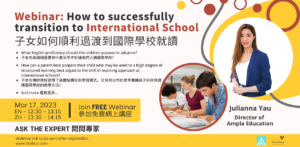March 19, 2019 | Julia Apthorp
 You’ve only just started university, but have heard unending horror stories about running the gauntlet of the graduate job market. Sensational headlines such as “on average there are 75 applications per vacancy”[1] and “Goldman Sachs attracts 250,000 student job applications”[2] can inspire a sense of dread about three years of your life that were supposed to be exciting. Even the realisation that these statistics aren’t a helpful reflection of the situation, least of all because there is no limit to how many job applications one can submit irrespective of suitability (unlike UCAS applications in the UK), provides little comfort. However, with the right balance of planning and determination, you can remove much of the stress of job hunting at university whilst giving yourself your best shot at landing that elusive first job. This article addresses these challenges from my own personal experiences, with a focus on applying for UK / London-based[3] jobs in financial and professional services.
You’ve only just started university, but have heard unending horror stories about running the gauntlet of the graduate job market. Sensational headlines such as “on average there are 75 applications per vacancy”[1] and “Goldman Sachs attracts 250,000 student job applications”[2] can inspire a sense of dread about three years of your life that were supposed to be exciting. Even the realisation that these statistics aren’t a helpful reflection of the situation, least of all because there is no limit to how many job applications one can submit irrespective of suitability (unlike UCAS applications in the UK), provides little comfort. However, with the right balance of planning and determination, you can remove much of the stress of job hunting at university whilst giving yourself your best shot at landing that elusive first job. This article addresses these challenges from my own personal experiences, with a focus on applying for UK / London-based[3] jobs in financial and professional services.
First, some good news. You don’t have to devote your entire university life to job hunting the moment you set foot on campus. Not only should part of university life be spent exploring your own interests, often whilst finding your feet away from home for the first time, it isn’t necessarily helpful to devote all your time to job applications and CV padding. One common theme that runs through the advice here is to discover what you enjoy and want to dedicate time to, both inside and outside the lecture hall. By doing so, you’re much more likely to succeed in your endeavours and simultaneously develop the skills that employers want to see in a graduate hire. Indeed, your first year, before academic pressures start ramping up and employers start bombarding you with publicity, is the perfect time to do this.

Every graduate employer has different selection criteria, but the skills they look for tend to fall into three buckets: academics, extracurriculars, and work experience. You should plan to dedicate time to all three of these over the course of your degree.
The first of these is relatively straightforward: aim to achieve at least that still magical 2.1 degree classification. Outside of this, there are of course options for those with a 2.2 (or below), but the picture becomes more complex and warrants a separate discussion. All else being equal, a First will (almost) always be viewed most favourably, but it will rarely compensate for shortfalls in the extracurricular and work experience buckets. Degree choice doesn’t typically make much of a difference, but a quantitative subject is helpful for certain professions (though this can be mitigated by having A-Level Maths). The exception is if your degree is specifically vocational e.g. Law, but this is not the case for most jobs in the City.
For extracurriculars, the rule of thumb ought to be quality over quantity. One or two consistent activities that you succeed in, ideally taking up leadership roles, will stand you in much better stead than occasional participation in five societies. There’s nothing wrong with exploring outside what you consider your ‘core’ activities, so long as you develop the right skills in those ‘core’ activities. Teamwork, leadership, and determination are all highly rated by employers, and whilst anybody can write these on their CV, it’s much easier to prove if you can speak of your experiences in detail and back them up with positions of responsibility that set you apart from your peers.
That said, don’t just hunt for easy titles – most employers can tell what different titles mean e.g. President of the Student Union vs. President of a small society that you founded yourself. Nothing wrong with the latter, but you’ll need to go into much more detail to articulate the initiative you showed, your reasons for founding the society, and what it has achieved. I’ve avoided mentioning any specific societies because these qualities can be shown across all manner of pursuits: sports, music, debating, charity work, military training, and much more.
Finally, work experience – often the hardest bucket to fill, not least because it overlaps with job hunting in general. If left too late, it’s easy to get trapped in a chicken and egg situation i.e. not having enough work experience to apply for that internship you need to get on the ladder in the first place. Timing is vital, and you should start looking for internships whilst you’re still not expected to have much work experience on your CV, which is typically the milkround for summer internships from your second year onwards. If you can make it onto a good internship at this stage, subsequent job applications tend to become much easier – or if you’re lucky, your internship may provide the opportunity to win a full-time job offer at the end of it[4].
Applying for internships and full-time jobs is unfortunately a demanding process, and it will often feel like you need both quality and quantity. Especially while hunting for that first opportunity for work experience, it’s common to send 20+ applications to the majority of employers in your chosen profession. It’s essential that each of these applications is high quality, since 20 average applications will all immediately find their way into the ‘no’ pile, while 20 good applications each stands a chance of landing you a shot at interview. How to craft a good application and prepare for interviews ought to be discussed at length in another article, but presenting well-prepared and tailored answers to the questions ‘why this job?’, ‘why this employer?’, and ‘why me?’ in both written (CV / cover letter) and oral (interview) settings will broadly address what employers want to see in a candidate.
There are many more nuances in the path to finding that elusive first job out of university, but I hope this article lays down some helpful guidelines on how to approach that challenge alongside your degree. Most importantly, your time at university should remain that once-in-a-lifetime opportunity for personal and academic exploration – and with some foresight and luck, that dream job should feel like a natural outcome of all your hard work and adventure.
[1] https://careersblog.warwick.ac.uk/2018/01/30/uk-graduate-recruitment-trends-2017-18/
[2] https://www.ft.com/content/7c862fb8-2977-11e6-8ba3-cdd781d02d89
[3] I will not address the challenges of securing visa sponsorship for those without the right to work in the UK in this article – the situation is presently unpredictable due to ongoing Brexit negotiations, and there is plenty of information available elsewhere on the internet
[4] How common this is varies a great deal by sector
To find out more about Ampla Education’s interview coaching and post university advisory services, contact us at info@ampla-edu.com
________________________________________________________________________
______________________________________________________
Julia obtained BA and MSci degrees in Natural Sciences from the University of Cambridge, specialising in Chemistry, where she was also a Flight Commander on Cambridge University Air Squadron in the RAF. She has worked as a strategy consultant in London and now focuses on strategy work in the TV and Media industry. With her broad range of experiences, she is able to offer interview coaching to Ampla’s students in a wide variety of contexts.
______________________________________________________
________________________________________________________________________
© Ampla Education – Unauthorised use of this material without permission is strictly prohibited. Excerpts and links may be used, provided that full credit is given to Ampla Education.



















